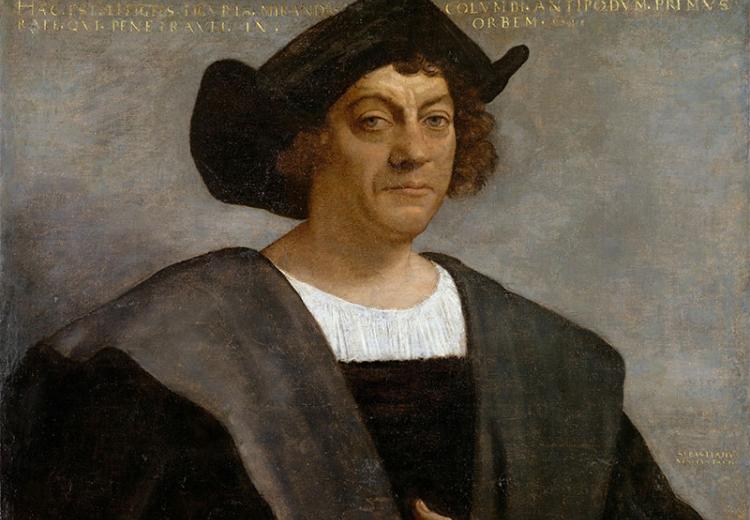What Was Columbus Thinking?

1519 portrait by Sebastiano del Piombo of a man said to be Christopher Columbus (born about 1446, died 1506).
"...one of the greatest mariners in history, a visionary genius, a mystic, a national hero, a failed administrator, a naive entrepreneur, and a ruthless and greedy imperialist.
—The Library of Congress's 1492: An Ongoing Voyage exhibition
Most students recognize the name Christopher Columbus. They may be aware that his voyages ushered in the first period of sustained contact between Europeans and the Americas and its people. They may not know, however, why Columbus traveled to the New World or what happened to the native people he encountered.
In this lesson, students read excerpts from Columbus's letters and journals, as well as recent considerations of his achievements. Students reflect on the motivations behind Columbus's explorations, his reactions to what he found and the consequences, intended and unintended, of his endeavor.
Guiding Questions
What were the intentions behind Columbus's voyages of exploration?
What were the consequences in the lives of Native Americans and Europeans?
What should Christopher Columbus's legacy be?
Learning Objectives
Identify the stated aims of Columbus's voyages.
Characterize changes in Columbus's purposes in writing the documents studied.
Describe the indigenous people Europeans encountered and the results of their contact.
Compare the goals of early European exploration with the results.
Evaluate the impact of Columbus on the indigenous people of the Americas and his legacy.
